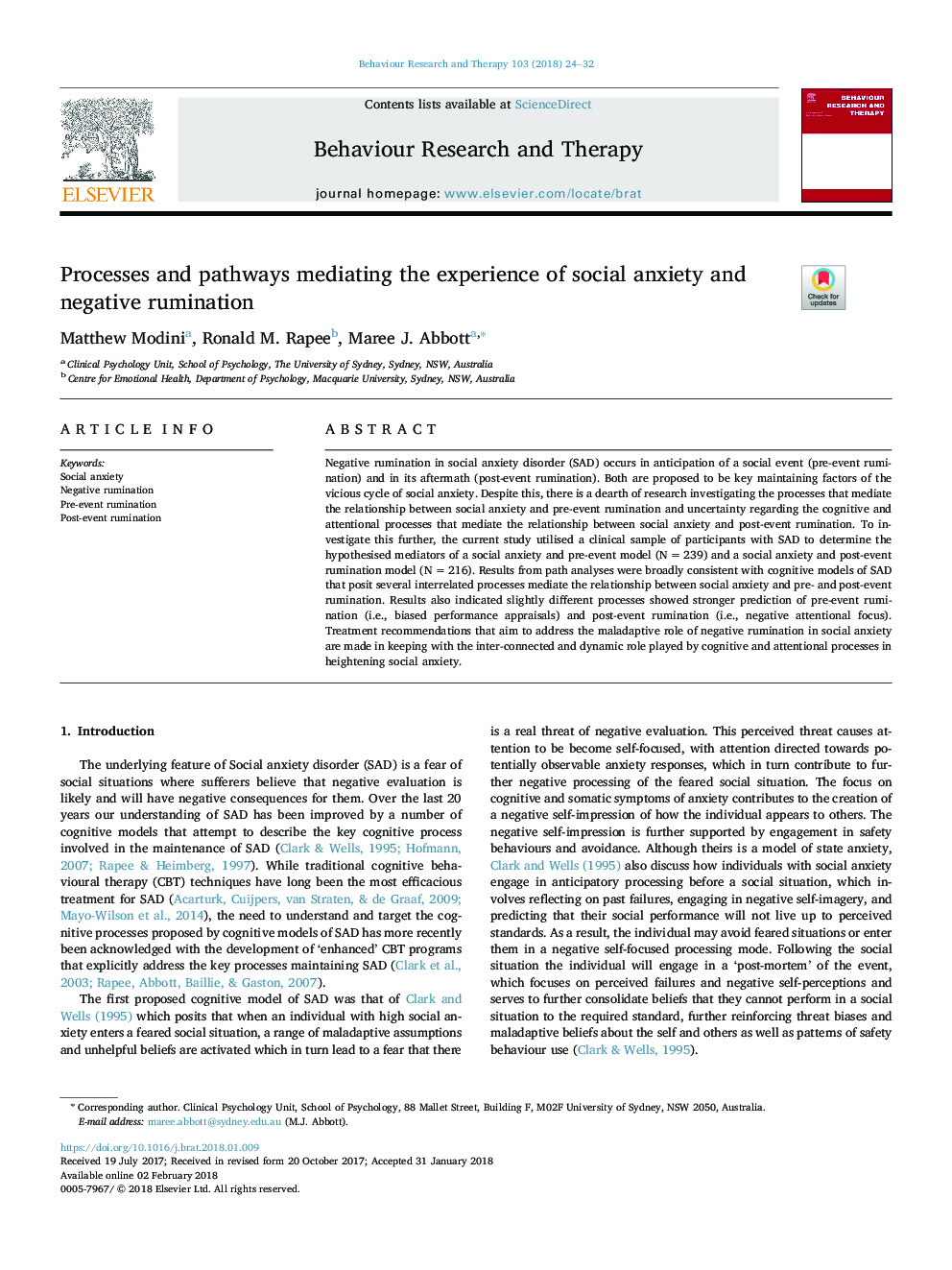| Article ID | Journal | Published Year | Pages | File Type |
|---|---|---|---|---|
| 7261857 | Behaviour Research and Therapy | 2018 | 9 Pages |
Abstract
Negative rumination in social anxiety disorder (SAD) occurs in anticipation of a social event (pre-event rumination) and in its aftermath (post-event rumination). Both are proposed to be key maintaining factors of the vicious cycle of social anxiety. Despite this, there is a dearth of research investigating the processes that mediate the relationship between social anxiety and pre-event rumination and uncertainty regarding the cognitive and attentional processes that mediate the relationship between social anxiety and post-event rumination. To investigate this further, the current study utilised a clinical sample of participants with SAD to determine the hypothesised mediators of a social anxiety and pre-event model (Nâ¯=â¯239) and a social anxiety and post-event rumination model (Nâ¯=â¯216). Results from path analyses were broadly consistent with cognitive models of SAD that posit several interrelated processes mediate the relationship between social anxiety and pre- and post-event rumination. Results also indicated slightly different processes showed stronger prediction of pre-event rumination (i.e., biased performance appraisals) and post-event rumination (i.e., negative attentional focus). Treatment recommendations that aim to address the maladaptive role of negative rumination in social anxiety are made in keeping with the inter-connected and dynamic role played by cognitive and attentional processes in heightening social anxiety.
Keywords
Related Topics
Health Sciences
Medicine and Dentistry
Psychiatry and Mental Health
Authors
Matthew Modini, Ronald M. Rapee, Maree J. Abbott,
